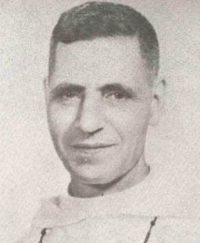From now on, the Philippines is free, sovereign and independent. Japan so proclaimed, and President Laurel so announced. The inauguration was a family affair. Only the Japanese representatives were invited: aside from Mr. Murata who up to now is chief adviser of the military administration and henceforth to be the ambassador plenipotentiary; the Vice President of the House of Peers, a bearded short man who looked like Bernard Shaw; and the Speaker of the House of Representatives who just flew from Tokyo. The inaugural ceremony was as usual, copied from the traditional program of independence inaugurations within the Sphere.
The truly moving act was the raising of the Philippine flag which for the first time waved in the air after almost two years of prohibition. The ceremony impressed even the skeptical and the non-conformists, attended by gigantic crowd placed by the press first at 800,000 and later at 500,000. There was still a cipher in excess.
It cannot be denied, however, that aside from the captive audience, many came on their own. Many of those who doubted and the recalcitrants saw in the ceremony a national glorification, not Japanese. And there was therefore a greater degree of spontaneity and enthusiasm than there had been in other celebrations in the past.
The inaugural speech of the new President was magistral, delivered pathetically in Tagalog. His program of government is extensive, comprehensive, innovative and conservative at the same time—although not convincing. He accentuated certain totalitarian tendencies of the Constitution, but he prescinded from personal glory and called for national discipline.
Some of the salient points of his program are: general amnesty for political prisoners and the guerillas who surrender within a prescribed period; persecution of public enemies who persist in obstructing the program of reconstruction (for them the Constabulary will be reinforced in order to avoid the humiliation of being forced to seek foreign intervention for the suppression of purely internal troubles); suppression of political parties at least during the formative period of the Republic.
To elevate the status of the masses; fixing a higher minimum wage and helping them materially so that each citizen might be a small proprietor. A new type of citizenry must be developed, to create in each individual a willingness to sacrifice and subordinate his personal interests to those of the State. His obligations are more important than his privileges. He should know his duties as he knows his rights, ready to comply even at the sacrifice of the latter.
To emphasize the dual objective of education: the moral formation and the development of character. It is the duty of every citizen to render military and civil service in accordance with the prescriptions of law. Every student, from the primary school to the university, should submit himself to a rigid discipline and wear the school uniform as
prescribed by specific rules. It is imperative that the family circle be forged. The installation of the paternalistic family, the cultivation of the oriental vitues of piety and filial obedience and the restoration of the woman in her place in the home, are the three cardinal points on which the family should rest.
